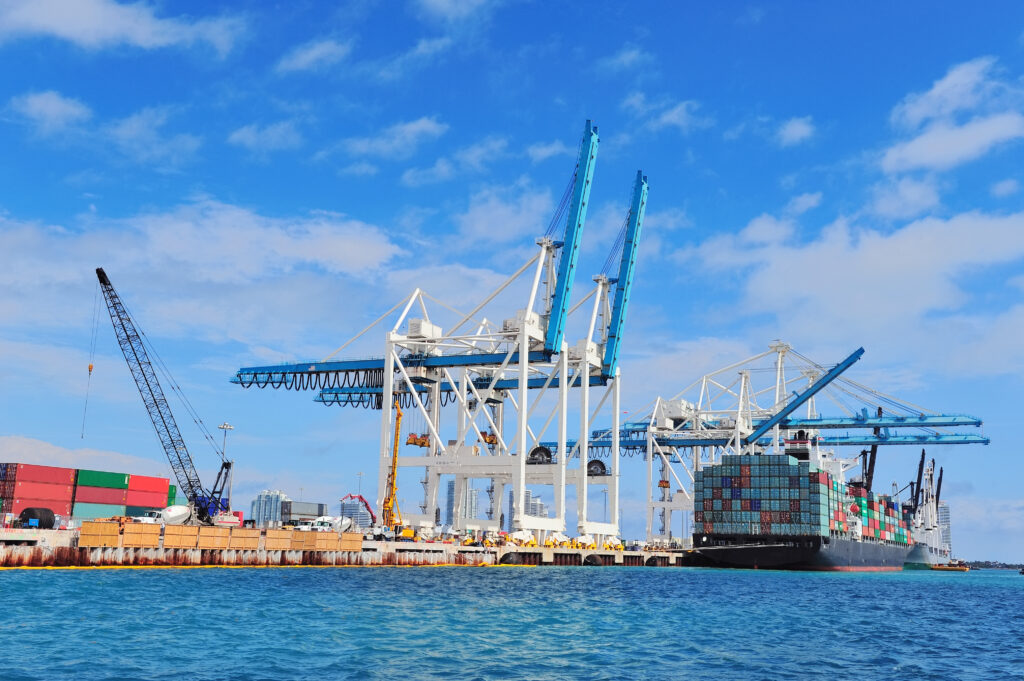
Freight News
Understanding International Shipping Regulations and Customs Policies

In today’s global economy, businesses of all sizes are involved in international trade. Whether you’re a small business owner or a large corporation, understanding international shipping regulations and customs policies is crucial for smooth and efficient operations. This guide will help you navigate these complex topics with ease.
What Are International Shipping Regulations?
International shipping regulations are rules and guidelines set by international authorities to ensure safe, efficient, and environmentally friendly shipping practices. These regulations cover a wide range of areas, including safety standards, environmental protection, and the handling of hazardous materials.
Key Organizations Involved
Several international organizations are responsible for developing and enforcing shipping regulations. Some of the most important ones include:
- International Maritime Organization (IMO): A specialized agency of the United Nations responsible for regulating shipping.
- World Customs Organization (WCO): Focuses on customs matters, facilitating international trade while ensuring compliance with regulations.
- International Air Transport Association (IATA): Governs air transport, including the shipping of goods by air.
These organizations work together to create a unified framework that facilitates international trade while safeguarding the environment and public safety.

Understanding Customs Policies
Customs policies are the laws and procedures governing the import and export of goods across international borders. These policies are implemented by customs authorities in each country to regulate and monitor trade.
The Role of Customs Authorities
Customs authorities are responsible for:
- Collecting import duties and taxes
- Enforcing trade restrictions and prohibitions
- Ensuring compliance with local and international regulations
- Preventing illegal trade, such as smuggling and counterfeit goods
Customs policies can vary significantly between countries, so it’s essential to be aware of the specific requirements for each destination.
Required Documentation for International Shipping
Proper documentation is critical for international shipping. Without the necessary paperwork, shipments can be delayed or even denied entry into the destination country. Here are some of the most common documents required:
1. Bill of Lading
The Bill of Lading is a legal document issued by the carrier to the shipper. It serves as a receipt for the goods and outlines the terms and conditions of transport. There are two main types:
- Straight Bill of Lading: Non-negotiable and used when the goods are consigned to a specific party.
- Negotiable Bill of Lading: Can be transferred to another party, making it more flexible for trade.
2. Commercial Invoice
This document provides detailed information about the goods being shipped, including:
- Description of the goods
- Quantity and value
- Terms of sale and payment
The commercial invoice is essential for customs clearance and for calculating import duties and taxes.
3. Packing List
The packing list details the contents of each package in the shipment. It helps customs authorities verify the goods and can be used to resolve any discrepancies during inspection.
4. Certificate of Origin
This document certifies the country where the goods were manufactured. It’s required for determining the applicable tariffs and trade agreements.
5. Import/Export Licenses
Some goods may require special permits or licenses to be imported or exported. These can include items like pharmaceuticals, firearms, or endangered species.
Navigating Customs Procedures
Navigating customs procedures can be challenging, but with the right approach, it can be manageable. Here are some tips to help you through the process:
Understanding Tariffs and Duties
Tariffs and duties are taxes imposed on imported goods. They vary depending on the product’s classification and the trade agreements between countries. Familiarize yourself with the Harmonized System (HS) codes, which classify goods for customs purposes.
Ensuring Compliance
Compliance with customs regulations is crucial to avoid delays and fines. Ensure that all documentation is accurate and complete, and stay informed about any changes in regulations that may affect your shipments.
Leveraging Technology
Many customs authorities offer electronic systems for submitting documentation and tracking shipments. Utilizing these systems can streamline the process and reduce the risk of errors.

Common Challenges in International Shipping
International shipping comes with its fair share of challenges. Here are some common issues you may encounter and how to address them:
Delays and Unforeseen Costs
Delays can occur due to a variety of reasons, including customs inspections, incorrect documentation, or adverse weather conditions. To minimize delays, ensure that all paperwork is accurate and complete, and consider working with a reliable freight forwarder.
Understanding Trade Restrictions
Different countries have specific restrictions on certain goods, such as alcohol, tobacco, or cultural artifacts. Research the destination country’s restrictions in advance to avoid any surprises.
Dealing with Language Barriers
Language barriers can lead to misunderstandings and errors in documentation. Consider hiring a professional translation service to ensure that all documents are accurately translated.
Conclusion
Understanding international shipping regulations and customs policies is essential for successful global trade. By familiarizing yourself with the key concepts and required documentation, you can navigate these complex processes with confidence. Stay informed about the latest developments in trade regulations, and consider partnering with experienced logistics providers to ensure smooth and efficient operations. With careful planning and attention to detail, you can overcome the challenges of international shipping and expand your business on a global scale.
Streamline Your Shipping Logistics with Express Freight Management
Are you ready to take your international shipping operations to the next level? Look no further than Express Freight Management. Our experienced team specializes in simplifying the complexities of global trade, ensuring smooth and efficient logistics for your business. From navigating customs regulations to optimizing supply chain management, we have the expertise to streamline your shipping processes. Don’t let the challenges of international shipping hold you back. Partner with Express Freight Management and unlock the potential of hassle-free global trade. Contact us today to discuss your shipping needs and explore how we can help your business thrive.
